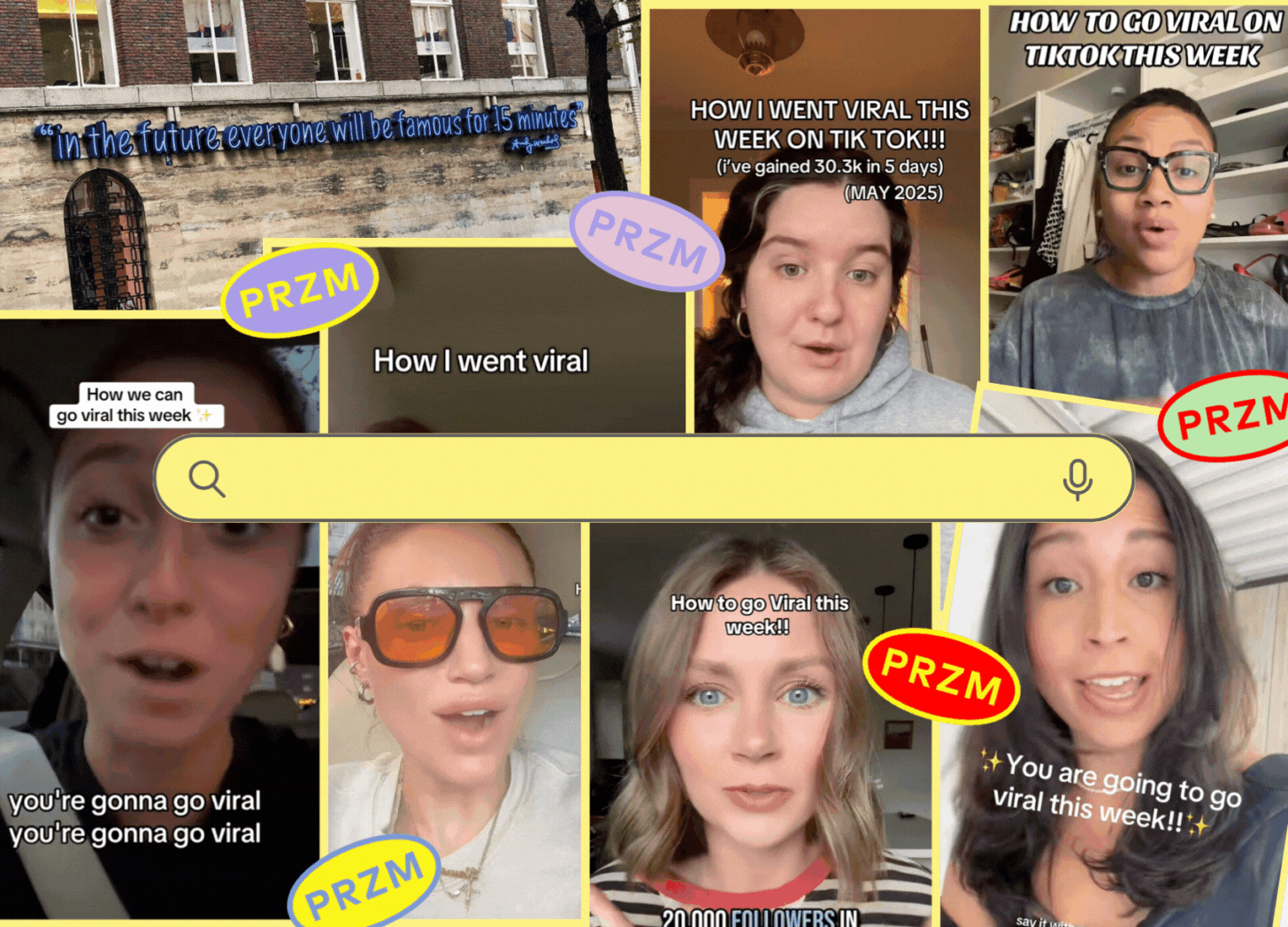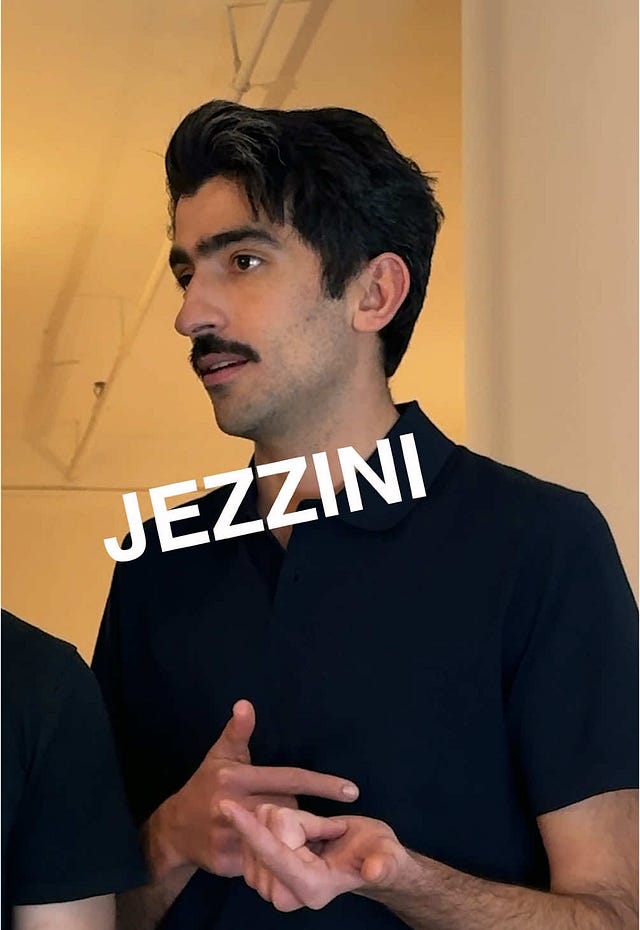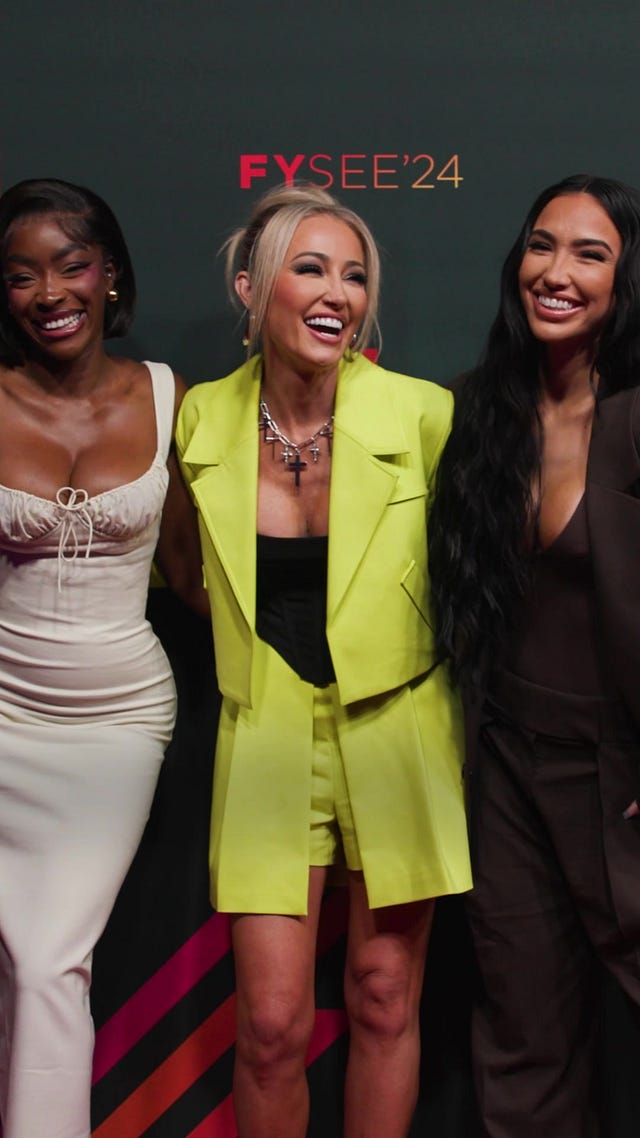How TikTok Virality Became a Religion
The woo-woo “viral hacks" turning algorithmic success into a new-age ritual
Welcome to PRZM Deep Dive — our bi-monthly essay series where we zoom in (and out) on a major topic that’s shaping next-gen culture and behaviors.
And if you came here for a quick “What’s Happening” recap about this week’s top digital culture stories, we still have that at the end.
🔍 Deep Dive: Does going viral on TikTok require “divine” intervention?
🌶️ What’s Happening: The All-American Ticketmaster revolt, Drake goes Hopecore, and the “propaganda” we’re not falling for …
💪 PRZM Flex: We won a Silver Telly with Netflix!
How TikTok Virality Became a Religion
This week, our FYP has been teeming with videos from TikTok evangelists illuminating the secrets of virality. Unlike past “TikTok social coaches,” these creators aren’t providing pointers on video-length or trending audios. Instead, they’re doling out almost ritualistic instructions — specific phrases to use and actions to take — that they claim are surefire hacks for algorithmic success.
Strategies that are being extolled include writing the affirmation “I WANT TO GO VIRAL,” finishing their video all the way through (hmm 👀), or merely recreating the exact same video with the same script and tropes. In effect, this amounts to a work of group-collusion, with TikTok users boosting each others’ posts to individually, and then collectively, reach a form of algorithmic nirvana.
The copy-cat nature of this action has some noting that all of this low key feels like an MLM scheme (or cult-like operation). For now, though, many users are eating these videos up: following the advice and engaging in the comments.
Few seem to be zooming out and asking, though: why exactly does everyone want to go viral?
It seems that young people equate going viral with — in the words of many TikToks — “a lottery ticket.” The idea is that the algorithm is so powerful that any video you post can shoot you into the digital stratosphere and change your life.
 Tiktok failed to load.
Tiktok failed to load.Enable 3rd party cookies or use another browser
Baked into this is a quasi-religious sentiment. To users, the algorithm is a benevolent, but merciful God: if you do as it says and “please” it, you will be rewarded with engagement. If you digress, you’re put into “views jail.”
To put it lightly, it’s getting weird. But it makes sense that young people raised on TikTok would regard the algorithm in such a way, given that it — like a divine entity — is mysterious, powerful and all-surrounding.
The reality is that making lucrative money on social media ain’t easy. There’s no single hack and one viral video (or even several) does not equate to brand deals, fame and fortune.
As the hype dies down, the futility of chasing algorithmic trends will become clear. Because, at the end of the day, the algorithm always changes. Today it’s watch time, tomorrow it’s saves.
What doesn’t change is this: originality, consistency, and sparkle. Creating content that’s useful and engaging will always outlast the hacks. Just look at some of our fav creators like Tanya Slehria or Lucas Wacomo. Whether your editing skills are next level, or your “takes” simply read as genuine and thought provoking, talent and personality will always take the cake. There’s no shortcut for that, but that’s what makes it special.
 Tiktok failed to load.
Tiktok failed to load.Enable 3rd party cookies or use another browser
What’s Happening
😵💫 “Propaganda?” - TikTok users are listing the "propaganda" they’re not falling for — citing everything from the MAHA movement to matcha. But is this all really “propaganda” or maybe just viral, timely topics? Maybe the broad use of “propaganda” simply means that it’s the new word for “advertising” or “PR” (like how “gaslighting” became synonymous with “lying” a few years ago).
🇺🇸 All American Love Fest? - The All American Rejects are having a legendary comeback, playing off anti-Ticket Master sentiment by going on a national house party tour (where tickets are cheap, with no crazy fees or caveats). It’s made them folk heroes and introduced them to a whole new gen. All this has us thinking: is positioning yourself as a foil to (the much reviled) TicketMaster a short cut to earning public goodwill?
 Tiktok failed to load.
Tiktok failed to load.Enable 3rd party cookies or use another browser
👛 Boy Bags– Following the Jacob Elordi-fueled purse craze, brands like Coach and Longchamp are leaning in, sending sleek crossbodies and shoulder bags to straight-boy creators. Could this be a shift in how masculinity and style intersect on social media? Or is this yet another cycle of short-lived “queer baiting?”
🥤 TSA to Tray? – First it was TSA bins, now it’s trays. Brands are riding the wave of another funky format to flex their products—and trays are having their moment. The Amazon Influencer account just dropped their latest take and we’re digging it.
💰 Hopecore Drake – Drake addressed rumors around his gambling habits via a “Hopecore” edit that doubles as a promo for a betting app. It’s a multi-pronged play: a PR response masked as meme bait and a high-paying brand deal. Whether he’s reclaiming his narrative, or just trolling, the ambiguity is the strategy, sparking chatter and keeping Drake at the center of the conversation.
PRZM Flex: Netflix Queue x PRZM Won a Telly!!
We’re thrilled to share that we’ve won a Silver Telly for our work with our client Netflix Queue for the second year in a row! 🥳 For this video series, PRZM scripted and produced a feature with the cast of Selling Sunset, spotlighting Netflix’s FYSEE: an immersive festival that brought Emmy voters (and fans) inside the worlds of their favorite shows. Check out the award-winning video below!









The way this topic lives rent free in my mind! & yes it feels like an MLM the way people push their viral strategy on TikTok 😵💫